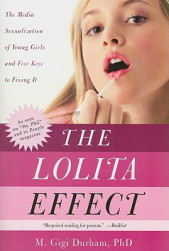The bottom line is that we live in an increasingly sex-saturated society, while lacking the ability to talk about children and sex in a measured or meaningful way. I was ill-informed as a child in all aspects of sex. My parents and the schools I went to lacked the knowledge to effectively teach me. Growing up I knew what sex was. But I didn’t know what sex was — and the implications it could have physically and psychologically on my life.
 It may be because of this lack of knowledge, or pertaining attitude, that the United States has the highest rate of teenage pregnancies, births and abortions, and the highest incidence of adolescent STDs in the industrialized world. To better combat these issues in the future I believe we need to have a better and more comprehensive sex education in school with a greater access to contraception. We need to develop more coordination between the medical and educational fields. Gender roles, power and interpersonal communication all need to be addressed more extensively.
It may be because of this lack of knowledge, or pertaining attitude, that the United States has the highest rate of teenage pregnancies, births and abortions, and the highest incidence of adolescent STDs in the industrialized world. To better combat these issues in the future I believe we need to have a better and more comprehensive sex education in school with a greater access to contraception. We need to develop more coordination between the medical and educational fields. Gender roles, power and interpersonal communication all need to be addressed more extensively.
Dr. Meenakshi Gigi Durham says it best:
“Sex is complicated and emotionally fraught; it is intriguing; it can feel pleasurable and transgressive, but it carriers consequences and risks that young children are not well prepared to recognize or handle.”
There should not be any shame in addressing sex to children at a young age. If our children are better prepared to deal with the complexities involved, then they will be more likely to engage in less risky behavior during adolescence.
The Lolita Effect robs many young children of the pleasure that is pure sensuous, self-adorning, and self-confident. It is the cause of many phenomenons, including eating disorders, dating violence, teen pregnancy, sexual abuse and sexual exploitation. Some children can move past these experiences and live fulfilling lives as adults, but others are not so lucky and they suffer significant, long-term, and devastating effects.
I’ll leave you all with this quote to ponder:
Advertisements Share this:“In an ideal culture,” writes the psychologist Mary Pipher, ” sexual decisions should be the result of intentional choices.”





